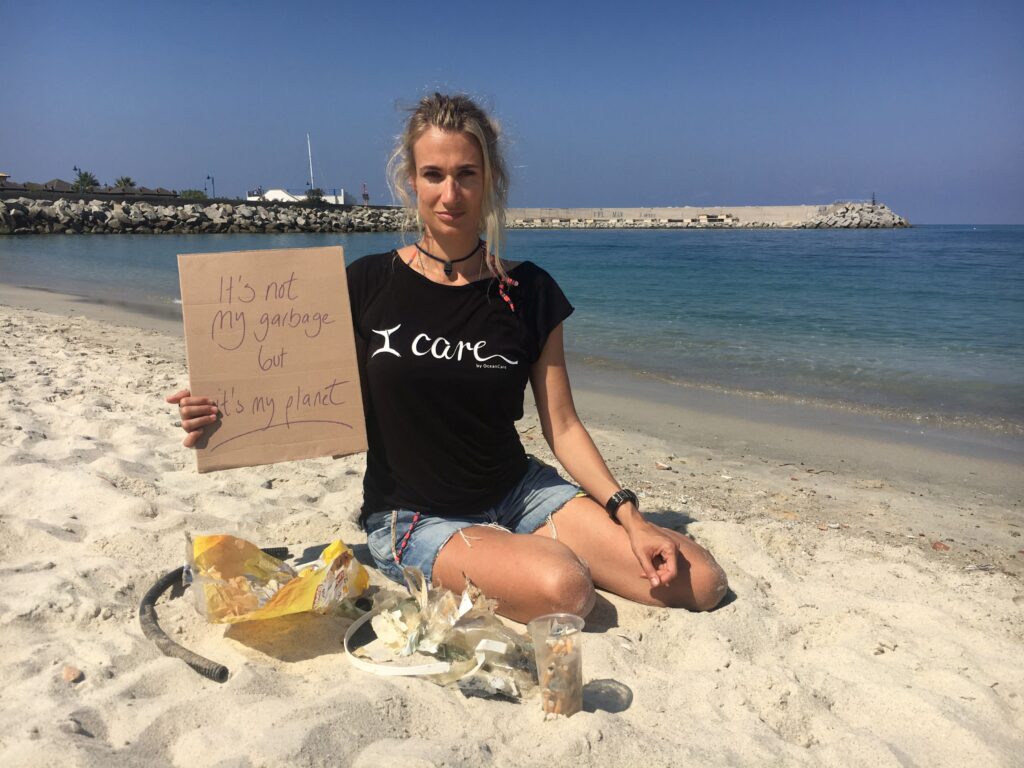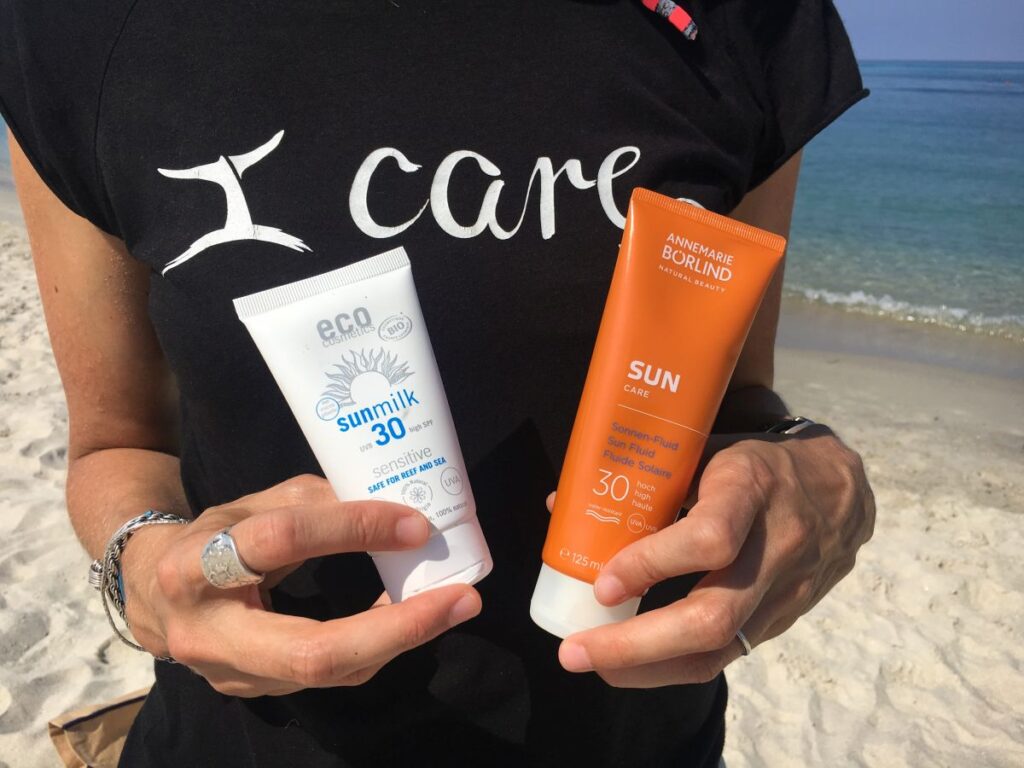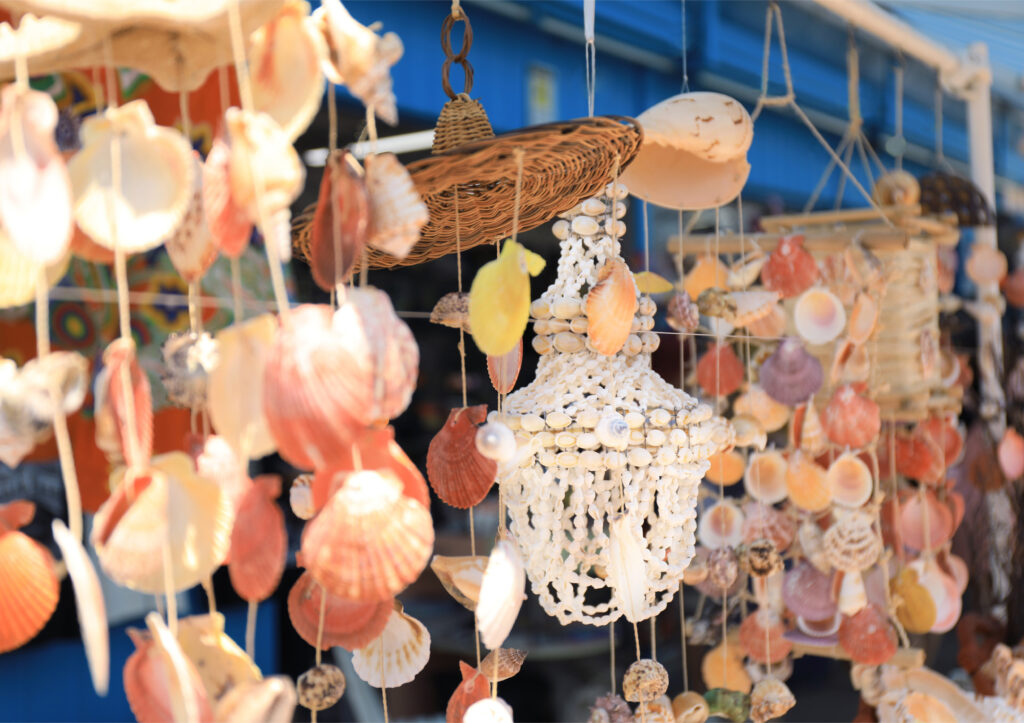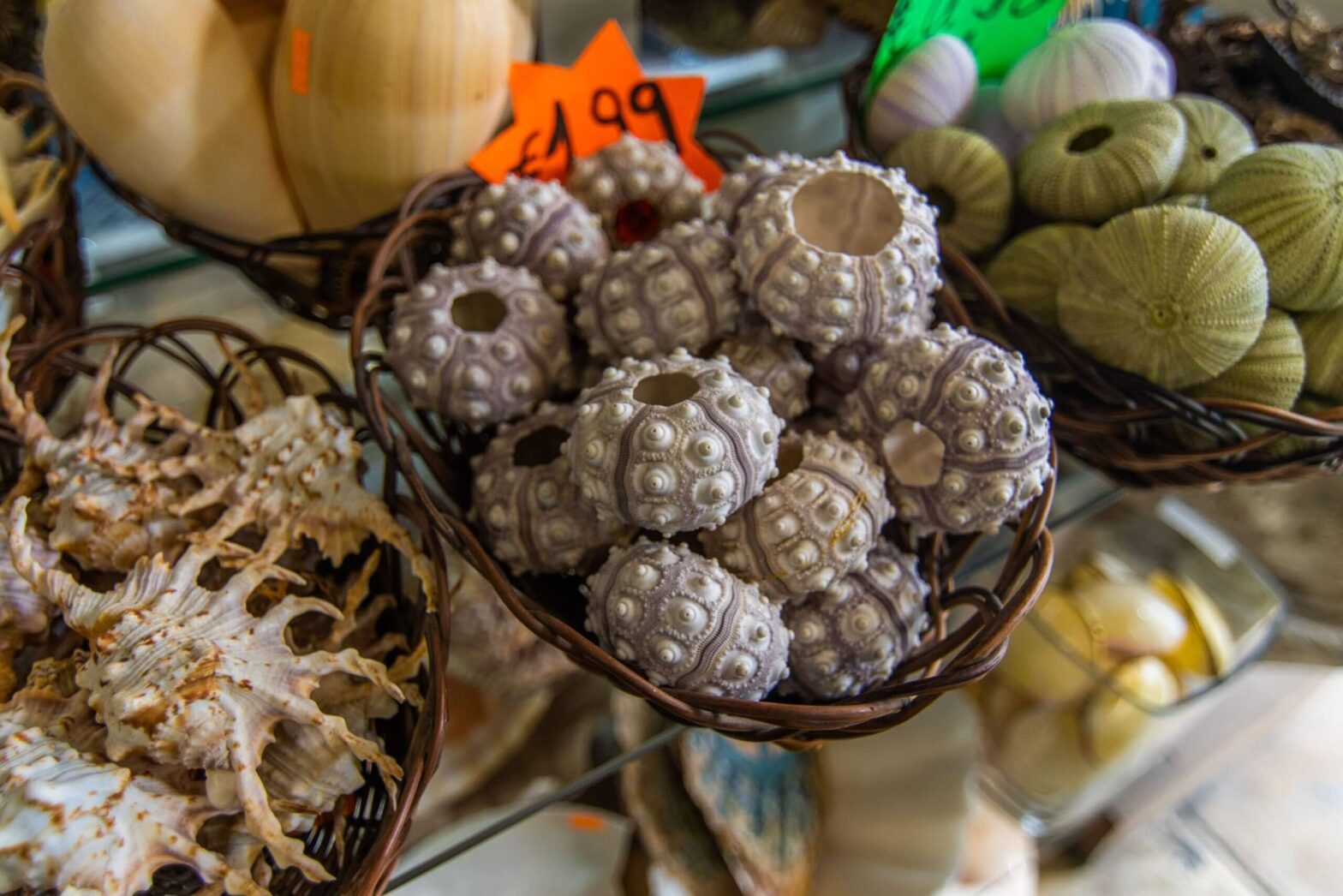Tips on how to protect the sea during your holidays
When we travel to the seaside or on the ocean during holidays, we can contribute to their protection. Find a range of practical tips below to reduce your environmental footprint – wildlife and nature say thank you.
Avoid disposable plastic
About nine million tons of plastic waste enter the oceans every year. You can do your part in reducing this burden to the marine ecosystem:
- Bring your own bottle and refill it with tap water. Where this is not possible: choose the largest water containers available.
- Take reusable bags with you when shopping. For example, use a veggiebag for buying fruit and vegetables.
- Avoid plastic drinking cups, plastic straws, disposable plates and cutlery, etc. wherever possible.
- Bring your bar of soap instead of shower gel in a plastic container. You save space and packaging waste. Further, choose cosmetic products that do not contain microplastic. This app will help you.
- Pack natural fibre garments in your bag. Synthetic fibres like polyester, nylon and acrylic loosen during laundry and get washed into the environment.
Beach Cleaning: Get involved or start your own cleanup activity!
About 80% of the plastic waste comes from the mainland and is carried into the sea by rivers, sewers and wind. Plastic kills hundreds of thousands of dolphins, whales, seals and turtles, and millions of seabirds. The animals starve to death with their stomachs full of plastic or drown miserably when they get entangled in plastic items. Help prevent this:
- Collect carelessly discarded plastic waste and dispose of it properly.
- Why not organise your own clean-up together with other holidaymakers?
- Field guide and holiday read: With nearly 600 pictures, the Austrian marine biologist Michael Stachowitsch highlights the wide range of waste items nowadays to be found on our beaches and in our oceans. Nonetheless, the book The Beachcomber’s Guide to Marine Debris comes with a good dose of humour.

Fish and seafood: Choose local fish and avoid endangered species
The wealth of fish in shops and restaurants is deceptive. Almost everywhere, fish catches outweigh fish reproduction. Fish from aquaculture is no solution, either. As consumers and tourists, we can contribute to sparing marine wildlife:
- Not eating fish is the only viable solution. If you cannot do without fish or seafood on your holidays, make sure to source it from sustainable and local fishing.
- Prefer local fish: eating salmon in the Maldives is ecologically nonsense.
- Hands off endangered species like swordfish, monkfish, tuna (six out of eight tuna species are threatened) and many more.
Choose ocean-friendly sunscreen
Every year, thousands of tons of sun cream enter the oceans. Many of these lotions contain chemicals that destroy coral reefs already at low concentrations. There are two main types of sunscreens: physical (inorganic, mineral), which stay on the surface of the skin and mainly deflect the UV radiation, or chemical (organic), which defuses the harmful UV light by absorbing it. The most problematic chemicals are octinoxate and oxybenzone, which have now been banned in Hawaii. Adding to this, many sun creams contain micro or nano plastic particles.
- Choose mineral sunscreens from natural cosmetics.
- Textiles provide good protection from the sun, too – or prefer the shade.

Don’t visit shows that use wild animals!
On their holidays, many people have the desire to get in direct contact with wild animals. Dolphins have been ascribed a wrong image of cuddly animals, who want to be near us and play. This incites more and more people to want to touch them and swim with them, disregarding the effects on these highly sensible animals, like disturbance and massive stress.
- No swimming with dolphins!
- Research tours or respectful whale watching: yes; visiting dolphinaria: no.
- Also stay away from elephant riding, circuses with wild animals, visits to fur farms, bullfighting and the like.
Respectful conduct in nature
Wild animals generally don’t want to be in a spotlight. They need their distance and calm. Direct interactions with humans can severely disturb them.
- When snorkelling or diving, enjoy the beauty of marine life without touching corals, mussels or other marine animals.
- Don’t engage in loud water sports activities such as jet skis.
Hands off problematic souvenirs
Many tourists want to take home some souvenirs. But be careful: These decorative items (including wooden objects) were often hurtfully ripped out of nature. Please also keep in mind that the import in checked or unchecked baggage of, for example, whale products violates both national and international law and may entail criminal prosecution in the EU, the USA and other states.
- Abstain from problematic souvenirs like corals, shells, tortoiseshell items, whale parts, carvings made of rare tree species, etc.

Offset CO2 emissions
For travelling, choose the train wherever possible. The most harmful means of transport are cruise ship which run on cheap heavy crude oil – the worst fuel in terms of emissions. Further, noise from ships interferes with the orientation of marine animals. However, travelling almost always entails a certain CO2 footprint. You can contribute to climate protection by compensating unavoidable emissions.
- Offset CO2 emissions of your car or plain travel e.g. via org.
- Support the tree planting initiative by Plant-for-the-Planet and contribute your share to climate justice.
